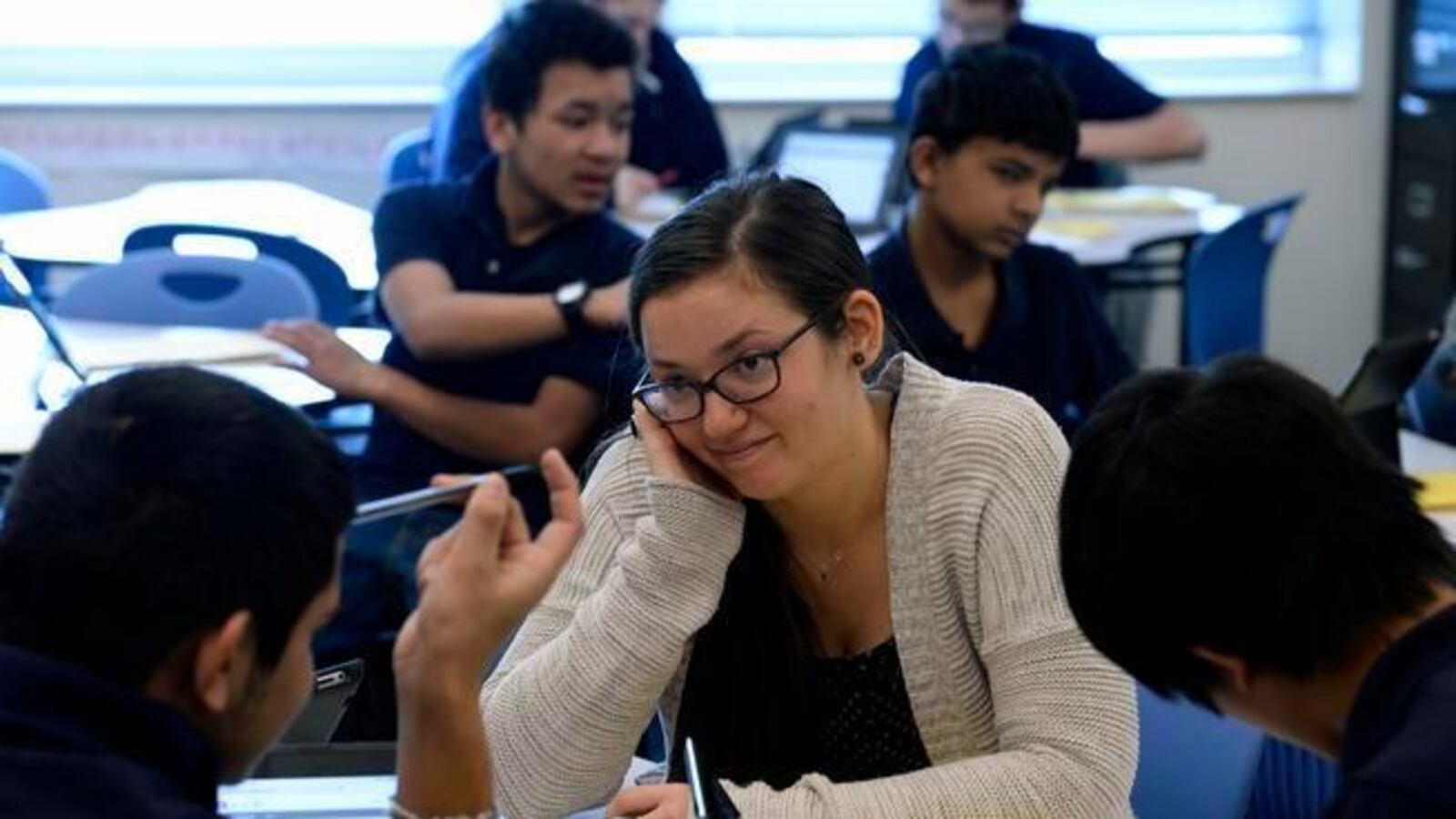The Aurora school board got a first look Tuesday at next year’s proposed budget, which includes cuts to district departments and increases for teacher salaries, additional staff in special needs programs, and more principal training.
District staff is proposing a $746.8 million budget, 4.7 percent less than the current year. The board will include a public hearing on the budget at its regular meeting June 5, and is expected to approve a final budget on June 19.
On Tuesday, the board asked questions about some of the proposed expenditures, but didn’t raise any major objections.
The proposal includes more money in the general fund despite a drop in enrollment because of an increase from state and local revenues. Overall funds are decreasing in part because of a drop in grant funding and building projects and increased costs for things like liability insurance, health benefits, and the preschool program. Aurora Public School officials described the budget as generally flat.
At an earlier board meeting, Superintendent Rico Munn reported that he had asked every department to propose cuts that amount to about $2.7 million. That money will help pay for the new board’s priorities discussed at board meetings earlier this year.
Those proposed expenditures related to the board’s priorities include: $10.7 million for salary increases that the district has yet to negotiate; $200,000 to centralize language and translation services in the district; $500,000 to transition APS Online, the district’s alternative education campus, from a school to a district program serving more students; and $2.5 million to start sharing local revenue with charter schools.
It also includes $500,000 for what’s described as the “most urgent” of the district’s mental health needs. The money would cover staffing increases — in some cases less than full-time — for center-based programs that serve students with special needs.
Aurora’s new chief academic officer, Andre Wright, helped argue for $477,000 to send more district principals through the a leadership program at the University of Virginia. Wright said that one unique aspect of the program is that it includes teacher teams in the work.
“There’s definitely been an interest as we’ve seen significant outcomes, improvements, related to that UVA work,” Munn added.
District officials also highlighted the need for the district to cover a shortfall in the district’s self-funded preschool program. Brett Johnson, the district’s chief financial officer, said that a “perfect storm” of increased costs is expected to create a shortfall of $1 million. District and state officials are proposing some cuts to reduce the shortfall by half so that the proposed budget has the district using $478,000 to supplement the program.
One piece of the budget that is still likely to change is pension contributions. The legislature has not yet finalized changes to the state pension system, although it may ultimately not require an increase contribution from employers, Johnson said.

